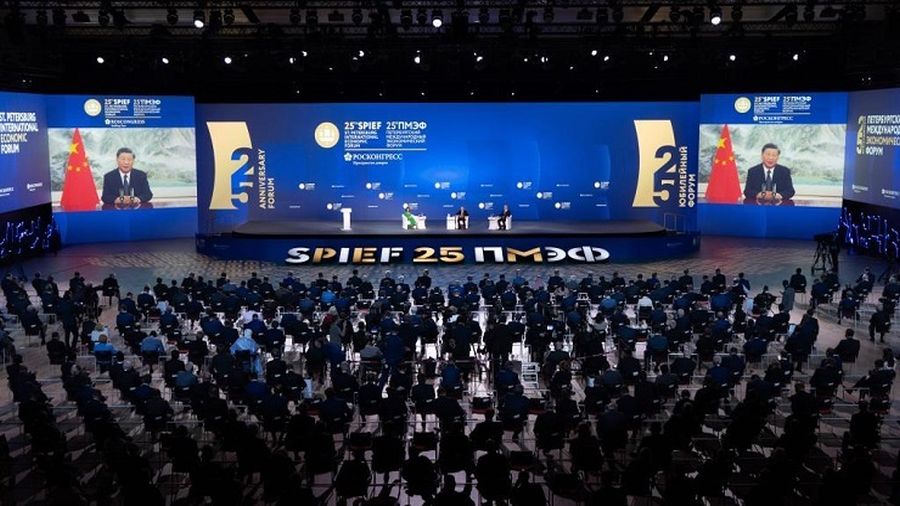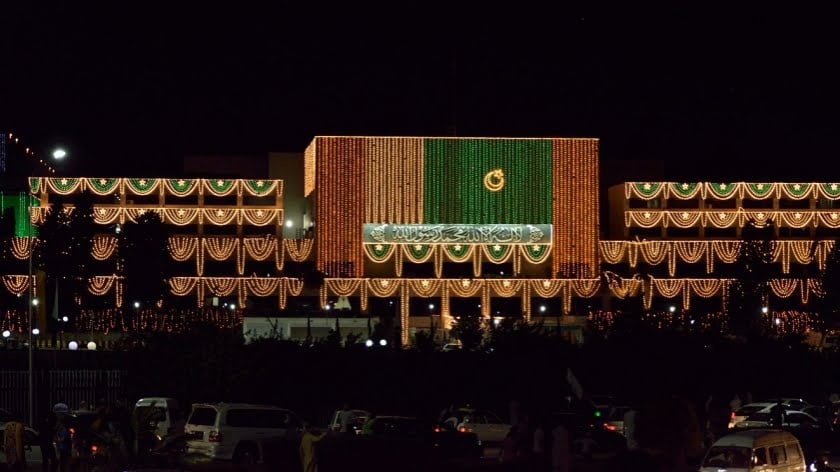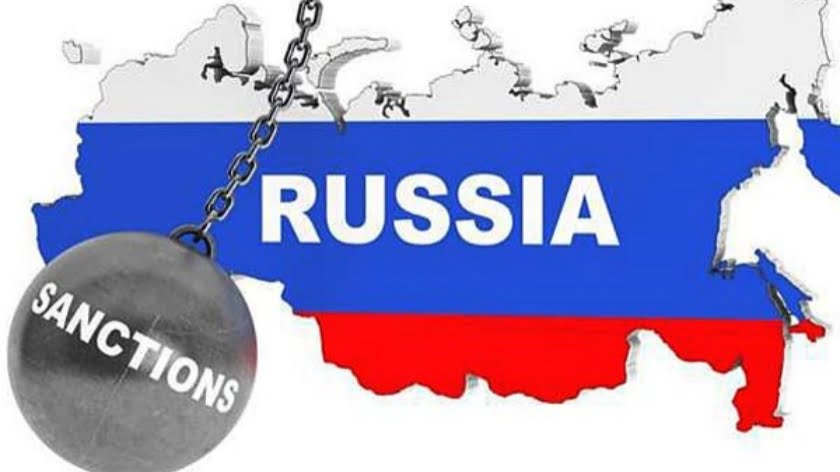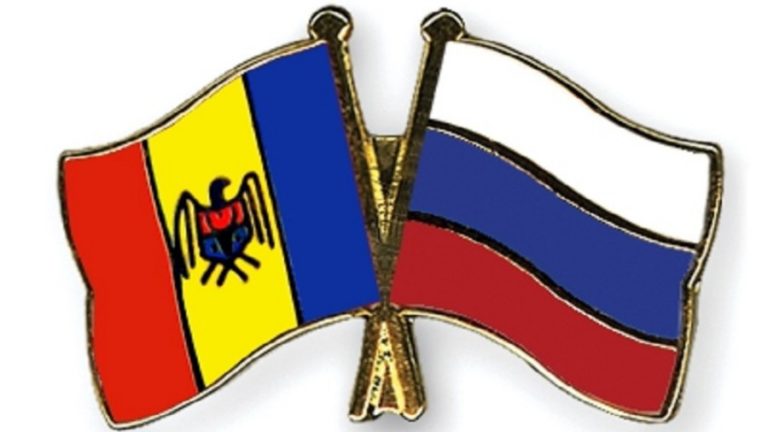Africa in the Light of SPIEF 2022
Moscow has in recent years been increasingly developing its cooperation with Africa in all directions. The current world situation has prompted the search for new opportunities for direct trade and economic ties, and for many years now SPIEF has been one of the platforms for communication between various states and businesses.
It is therefore not surprising that one of the most interesting and promising discussions at the 25th St. Petersburg International Economic Forum (SPIEF) was the Russia-Africa Business Dialogue. The event, which focused on the priorities of Russian-African cooperation in a changing world order, evoked a keen interest in both Africa and Russia.
It was attended by representatives of official authorities, the public and business from Russia, African states and many countries from elsewhere that have shown interest in cooperation with Africa. During the dialogue, the Prime Minister of the Central African Republic, Félix Moloua, the Minister of Industry and Trade of Egypt, Nevin Gamea, the Minister of Industry of Algeria, Ahmed Zeghdar, the Minister of Mines, Energy and Water of Mali, Lamine Traoré, the Minister of Industry and Trade of Zimbabwe, Sekai Nzenza, the President of the Commission of the Economic Community of Central African States, Gilberto Da Piedade Verissimo and other politicians expressed their vision for cooperation between Russia and Africa.
In their speeches, African countries supported anti-globalization sentiments, stressing that the West exploits the resources of their continent and profits from conflicts. Russia, on the other hand, is an exporter of stability and security in the region. Many speakers pointed out during the dialogue that the purpose of the anti-Russian sanctions imposed by the US and the West is not only to destroy Russia, but also to “strangle” others, including African states. At the same time, they have no doubt that the US and its European allies will offer the governments of the continent solutions that benefit only the West, bypassing their cooperation with Russia.
Zimbabwe’s Minister of Industry and Trade, Sekai Irene Nzenza, expressed her gratitude to Moscow for its support during the COVID-19 pandemic. She also stressed Zimbabwe’s openness to cooperation with Russian entrepreneurs, pointing in particular to the country’s wealth of natural resources and willingness to jointly develop tourism, and to the successful work of several Russian companies in the country, such as Alrosa.
On the sidelines of SPIEF-22, Senegalese entrepreneur Moustapha Thiam said that all global problems should be solved together and that African countries should always maintain contact and cooperate with Russia. In Senegal, the entrepreneur founded Sentech Energy, an innovative company that combines developments in agriculture and renewable energy. Moustapha Thiam expressed his interest in cooperation with Russian business and recalled that Russia and Senegal have been cooperating for many years and that relations between the countries are constantly developing. A fortnight ago even Senegalese President Macky Sall, Chairman of the African Union, came to Moscow to meet Putin. Moustapha Thiam is convinced that cooperation with Russia can have a huge impact in the future and open even more opportunities and doors for Russia in Africa. At the same time, he stressed that Western sanctions against Russia are perceived very negatively in Africa and are already harming the peoples of the continent. Moustapha Thiam spoke with enthusiasm about the Pan-African projects, which aim to integrate African countries economically and culturally in order to accelerate their overall development.
The President of the Commission of the Economic Community of Central African States (ECCAS), Gilberto Da Piedade Verissimo, noted in his speech that African countries have a long history of cooperation with Moscow, many of them in need of support from Russia. In recent years, mutual turnover has doubled, from $41 million to $80 million, strengthening Russia’s position in Africa.
As the head of Mali’s delegation, Minister of Mines, Energy and Water, Lamine Seydou Traoré, noted in his speech, the SPIEF-22 forum was very relevant, because for a long time relations between different states have been focused on the West. But today most countries have a choice of whom to trade with, there is an opportunity for lucrative exchanges, both economically and militarily, and there is a choice of partners. Mali is a shining example of new African resistance to the hegemony of France and other Western countries. Answering the question of why Bamako has become one of the powerful centers of search for an alternative path for the people of Africa, Traoré said that last autumn, after the failure of Western counter-terrorism missions in the Sahel, Mali began to actively expand security cooperation with Russia. The rapprochement with Russia has displeased NATO and the EU, but Bamako authorities have not bowed to pressure, and cooperation between the two countries is now on the rise.
Speakers at SPIEF-22 expressed a common view that Russia needs to develop direct cooperation with African states, which opens up many prospects for Moscow, and which is extremely important in the modern context. Representatives from Africa also see SPIEF-22 as a mutually beneficial opportunity to strengthen cooperation with Russia.
Aleksandr Shokhin, head of the Russian Union of Industrialists and Entrepreneurs (RSPP), said during a speech at the SPIEF conference that African countries are interested in working together on international projects with Russia. Shokhin stressed that “negotiations on free trade zones with individual African countries, including between the Eurasian Economic Union (EAEU) and associations of the Dark Continent, are underway. African countries are reaching out for integration projects on their own. It is the initiatives related to the use of raw materials, minerals and goods produced in Africa that are important.”
Russia’s readiness to further develop cooperation with Africa in university studies was expressed by Natalya Bocharova, Russian Deputy Minister of Science and Higher Education. She recalled that ever since Soviet times, Africans have been coming to Russia to receive education, with some 27,000 African students now studying in the Russian Federation. Last year, the Russian-African University opened, but for the time being it will be online, offering programs in English and French. In addition, an IT course has been introduced for African students, and business is involved in the university, which is important for the process of technology adoption in the countries of the Dark Continent.
The discussions at SPIEF-22 highlighted the mutual interest in developing trade and economic ties between Russia and Africa. Their priorities have been identified as food and energy security, developing new ways of financial settlement, cooperation in innovation and technology, health, education and culture, as well as cooperation within integration alliances.







